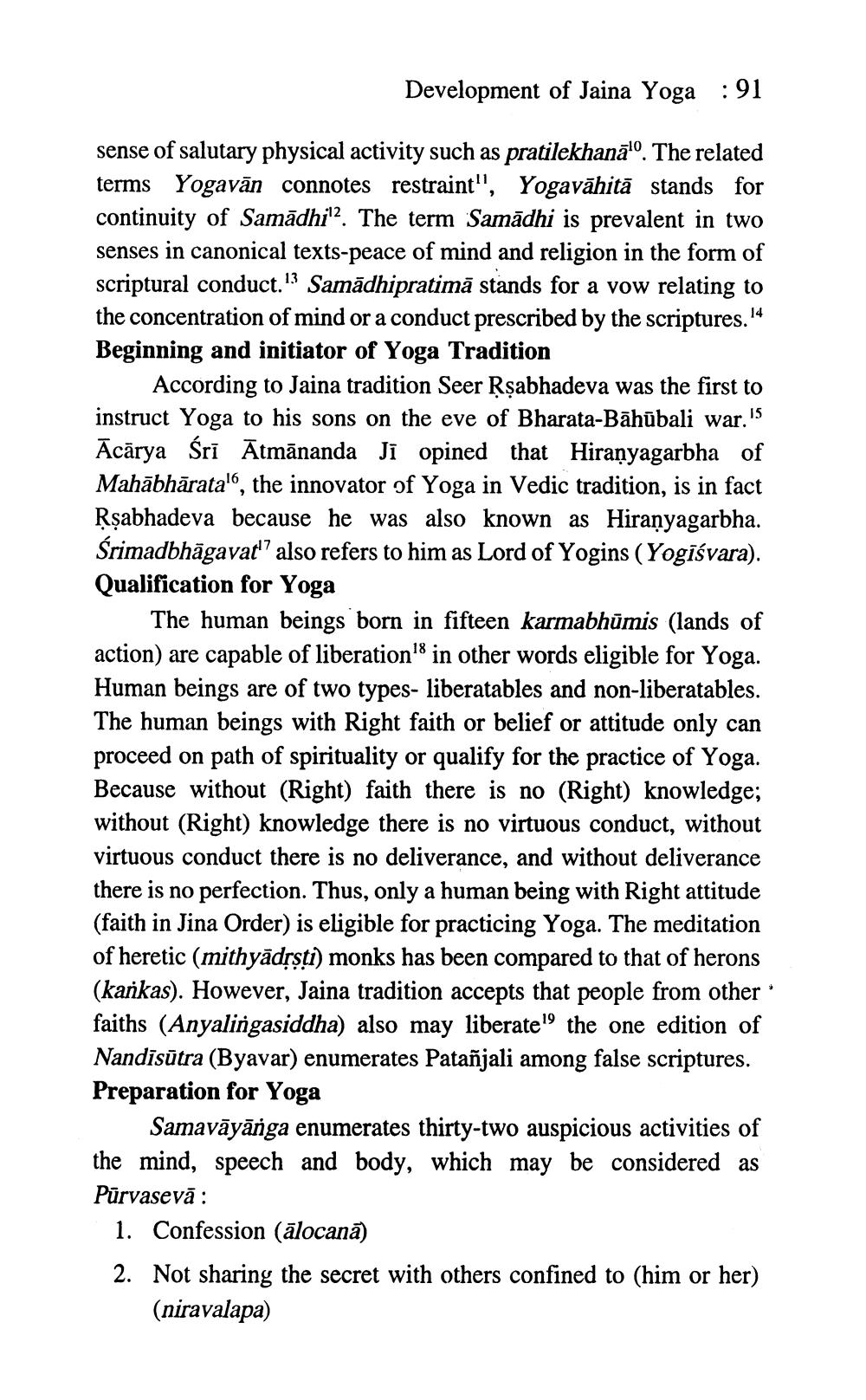________________
Development of Jaina Yoga : 91
sense of salutary physical activity such as pratilekhanā0. The related terms Yogavān connotes restraint", Yogavāhitā stands for continuity of Samādhill. The term Samādhi is prevalent in two senses in canonical texts-peace of mind and religion in the form of scriptural conduct." Samādhipratimā stands for a vow relating to the concentration of mind or a conduct prescribed by the scriptures. 4 Beginning and initiator of Yoga Tradition
According to Jaina tradition Seer Rşabhadeva was the first to instruct Yoga to his sons on the eve of Bharata-Bāhūbali war." Ācārya Śrī ātmānanda Ji opined that Hiranyagarbha of Mahābhārata's, the innovator of Yoga in Vedic tradition, is in fact Rşabhadeva because he was also known as Hiranyagarbha. Srimadbhāgavat' also refers to him as Lord of Yogins (Yogiśvara). Qualification for Yoga
The human beings born in fifteen karmabhūmis (lands of action) are capable of liberation in other words eligible for Yoga. Human beings are of two types- liberatables and non-liberatables. The human beings with Right faith or belief or attitude only can proceed on path of spirituality or qualify for the practice of Yoga. Because without (Right) faith there is no (Right) knowledge; without (Right) knowledge there is no virtuous conduct, without virtuous conduct there is no deliverance, and without deliverance there is no perfection. Thus, only a human being with Right attitude (faith in Jina Order) is eligible for practicing Yoga. The meditation of heretic (mithyādssti) monks has been compared to that of herons (karkas). However, Jaina tradition accepts that people from other faiths (Anyalingasiddha) also may liberate the one edition of Nandīsūtra (Byavar) enumerates Patañjali among false scriptures. Preparation for Yoga
Samavāyānga enumerates thirty-two auspicious activities of the mind, speech and body, which may be considered as Pūrvasevā:
1. Confession (ālocanā) 2. Not sharing the secret with others confined to (him or her)
(niravalapa)




